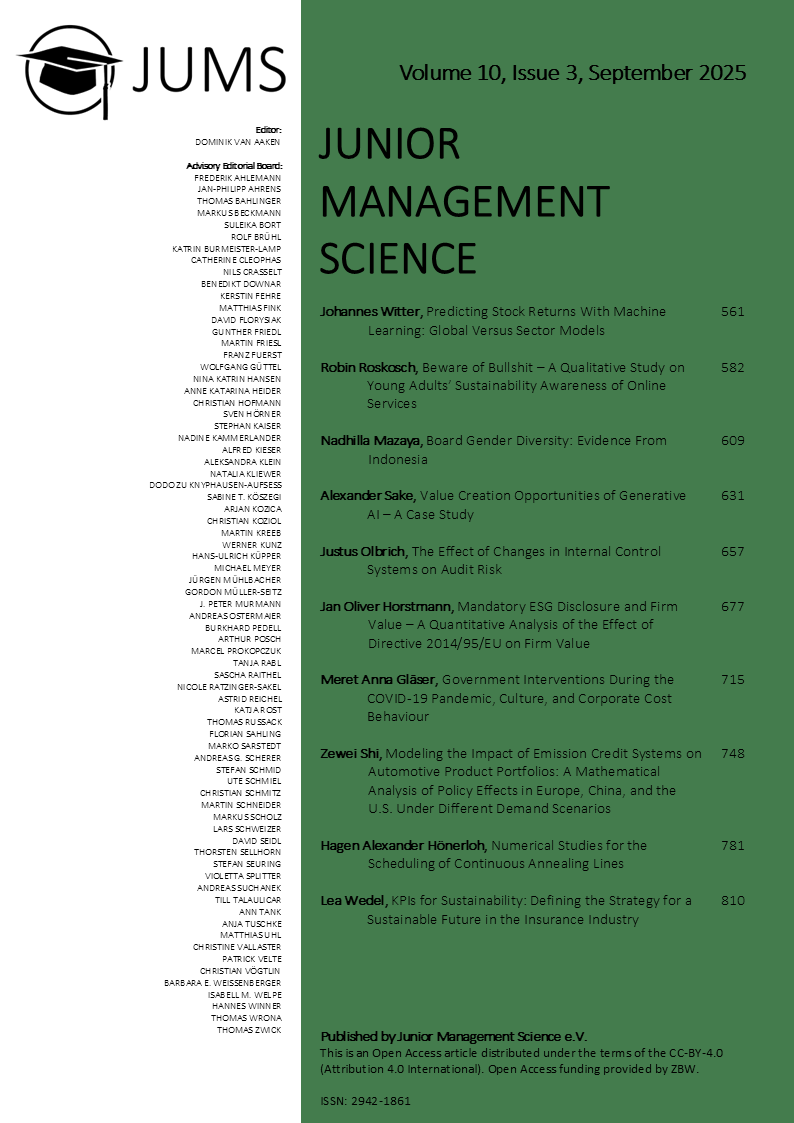Abstract
The COVID-19 pandemic triggered unprecedented government interventions, creating a unique setting to examine implications on corporate cost behaviour. This study explores the relationship between the stringency of government interventions during the pandemic and labour cost stickiness, as well as the moderating role of national culture, using 15,446 firm-year observations from 3,383 listed firms across 25 European countries from 2017 to 2022. A difference-in-differences regression analysis reveals that stringent interventions are related to increased labor cost stickiness, suggesting that managers view such measures as a signal of pandemic control which reduces their pessimism about future demand. Additionally, a median-based sample split shows that several dimensions of national culture moderate the relation between governmental stringency and labour cost stickiness, highlighting that culture influences how managers form future expectations based on stringent government interventions. The study connects formal institutions, i.e. governmental interventions, and informal institutions, i.e. national culture, with cost asymmetry as well as expands firm-level cost behaviour research in the context of the COVID-19 crisis.
Keywords: cost stickiness; COVID-19; culture; interventions

Dieses Werk steht unter der Lizenz Creative Commons Namensnennung 4.0 International.
Copyright (c) 2025 Meret Anna Gläser

